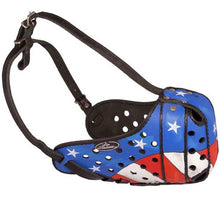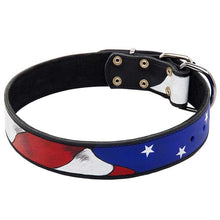4 Tips For Keeping Your Dog's Coat Shiny And Healthy

Your dog’s skin and coat is a view into the window of their health. Healthy dogs should have supple skin and their fur should be soft with some glossy shine. A dull coat and scaly skin may be a sign of a health problem so if the condition of your dog’s skin or coat suddenly changes, you should talk to your vet.
1. Grooming
German Shepherds have a medium length, double coat. The top layer of their coat, or guard coat, is slightly wiry. Their undercoat is thick, soft, and downy. Some German shepherds have a long coat, which can be less wiry than a stock coat.
To keep their coat healthy and to reduce shedding, German shepherds need to be brushed a few times a week to remove loose fur. They only need a bath 2 - 3 times a year, unless they get into something funky.
2. Bathing
German shepherds are notorious for having sensitive skin. They should only be bathed in a shampoo that is pH balanced for dogs. Some ingredients that can irritate their skin include parabens, sulfates, detergents, artificial fragrances, colors, and preservatives.
If your German shepherd has dandruff and/or dry skin, look for an organic shampoo and conditioner that is gentle on the skin and is moisturizing. Some ingredients to look for include coconut oil, olive oil, oatmeal, and aloe vera.
If your dog is itchy and/or has dry skin, there are some great leave-in conditioners, which can double as a lotion that can be used directly on dry skin, such as Zymox Anti Itch Conditioner or Warren London Hydrating Butter. There are also many spray-on moisturizing conditioners, like Vet’s Best Moisture Mist.
If your German shepherd’s skin and coat is chronically greasy, they may have genetic seborrhea, yeast, or a skin infection. Under or over bathing a dog with oily skin can actually make the problem worse. If your dog is stinky and greasy, you need to see the vet to determine if there is a serious health problem going on such as an endocrine disorder. Your vet can get to the bottom of the problem and help you determine if you need a prescription shampoo.
3. Diet
Your dog’s diet is the foundation for good health. Well balanced, high quality food for large dogs 50+lbs is vital to their health and longevity. There are many opinions about what makes up the ‘best’ diet for dogs, but there is no ‘one size fits all’ food on the market. However, there are specialized foods, such as for sensitive skin.
Whether kibble or canned, high quality commercial dog foods are highly regulated and have undergone rigorous testing by veterinary specialists. The World Small Animal Veterinary Association suggests purchasing food that has been formulated by someone with a PhD in animal nutrition or who is board certified by the American College of Veterinary Nutrition (ACVN).
The dog food should be complete and balanced, the AAFCO adequacy statement should be on the label, at minimum it should have undergone actual feeding trials with lab analysis, nutrient analysis, a guaranteed nutritional analysis, guaranteed calories per cup, the company should test their food ingredients pre manufacturing, should manage and oversee their own production, and have strict quality control measures in place.
You should be able to ask and receive the exact amount of any nutrient such as protein, phosphorus, sodium, etc. The answer should ideally be an exact number, such as grams per 100 kilocalories or grams per 1,000 kilocalories, rather than on an ‘as fed’ basis. If you’d like more information on what nutrients your dog needs, you can get that information from the Merck Manual, Nutritional Requirements and Related Diseases of Small Animals.
4. Supplements
Supplements that are good for dogs and can also help their coat become silky and shiny include:
- Omega 3 fatty acids, such as fish oil or sunflower oil
- Sardines packed in water or olive oil
- Salmon packed in water
- Medium-chain triglycerides, such as coconut oil (used topically or orally)
- Treats that contain hemp, chia or flax seed oils
- Canine supplements that contains vitamin A, biotin, and zinc
- Probiotics
Your dog probably doesn’t need all these supplements, balancing the diet is the key. For example, if you’re already feeding a food high in omega 3’s, you may want to try adding coconut oil, rather than more fish oil.
Talk to your vet before adding vitamin supplements to your dog’s diet since too much of a good thing can become a bad thing. Also, by bringing your dog food label to the vet or consult with a veterinary nutrition expert, your vet can be helpful in creating a balanced diet and supplement plan.
We hope these tips help get your dog’s fur soft, shiny and healthy. Please share them with your dog loving friends.























